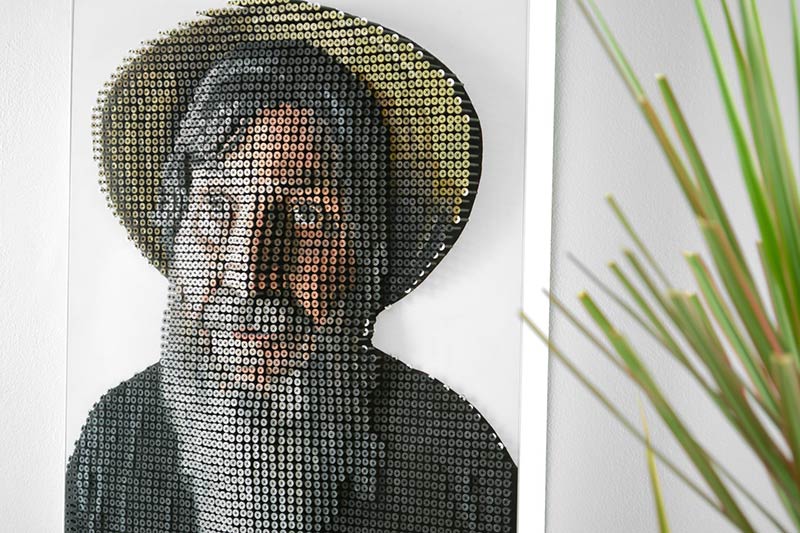
One day, a blind man discovered a screw painting by Andrew Myers with his hands. The blind man found as much enjoyment out of the tactile elements of the work as any sighted person ever has by just looking at them. Andrew considers this moment as one of the most inspiring of his career. This led us to a question: Why is touching artwork so taboo?

Prior to the mid-1800s, tactile interaction was commonplace for visitors experiencing collections of art, but as museums of art evolved, rules forbidding touch became the norm. In some cases, these were to protect artwork that truly was not meant to be touched, but in large part these norms had nothing do with preservation and everything to do with nineteenth century politics of gender, race and class control.
In light of all this, Cantor Fine Art decided to create a documentary that elevates the level of tactile arts, and gives back to the visually impaired community. It was at that point that they met George Wurtzel.
George is a blind artisan and teacher working at Enchanted Hills Camp in Napa Ca. This is a 300 acre camp nestled in the red wood forest above Napa Valley. Enchanted Hills is a summer camp for the visually impaired. Here George teaches blind folks, through example, how to use all the equipment necessary to become blind artisans.
Currently, George is converting an old grape crushing barn into a Tactile Art Center. The top floor of the building is his 1900 sq. ft. wood working shop. The bottom floor will be his Tactile Art gallery space where blind people can feel and sell their artwork.
'Cantor Fine Art' fell in love with George and his mission and wanted to support his new tactile art gallery. So they worked with Andrew Myers to surprise George with a tactile portrait of himself. The first portrait he will be able to feel and recognize.
comments